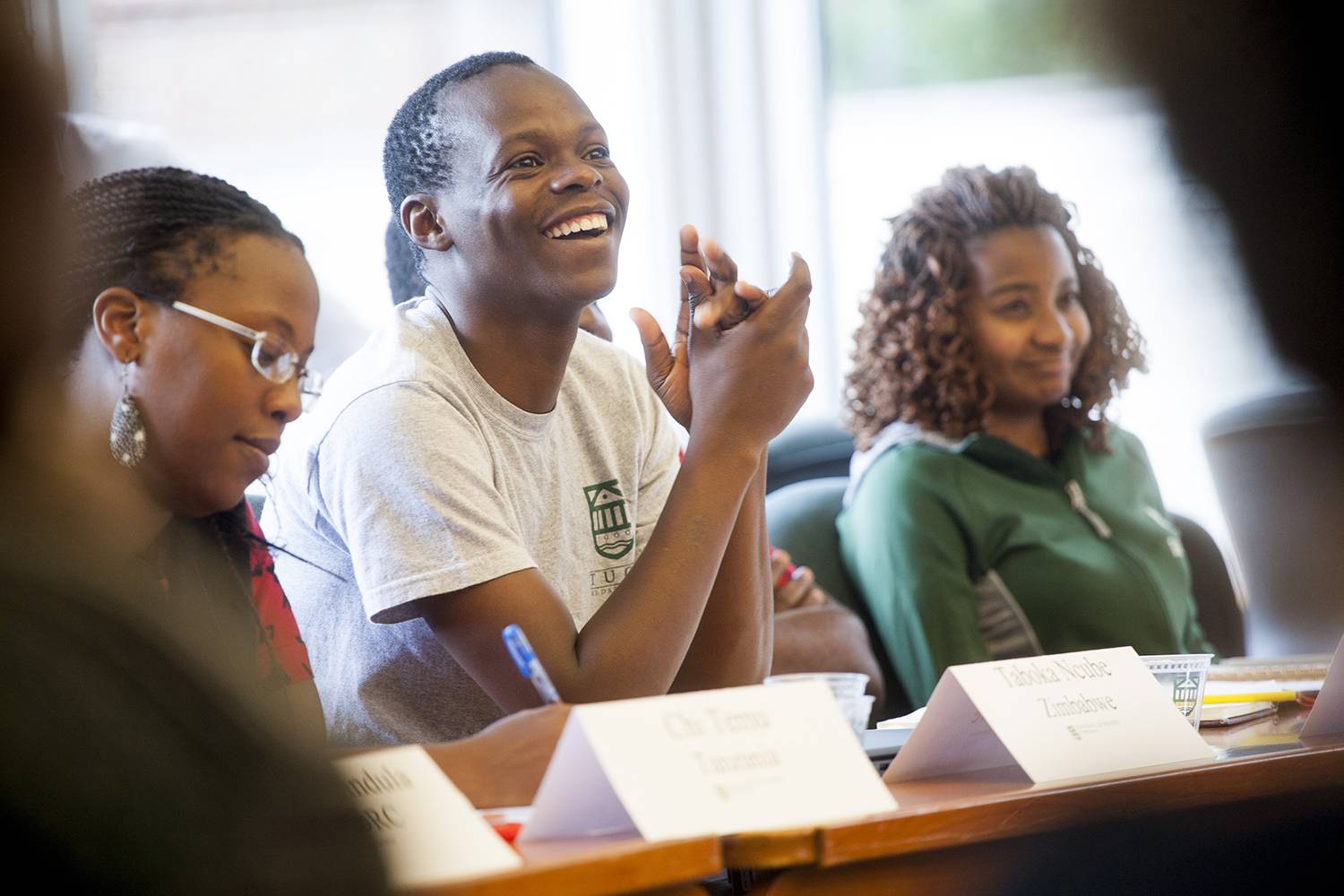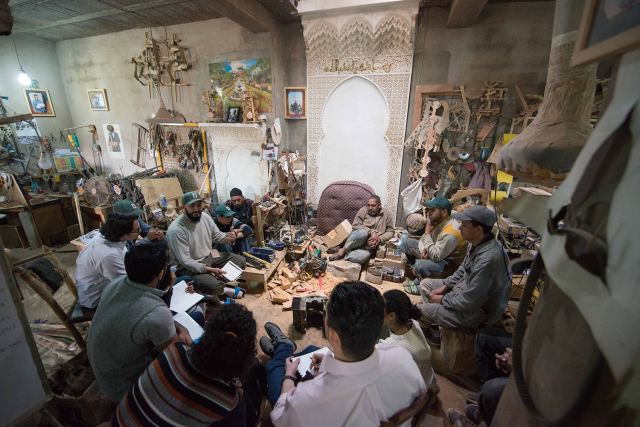Leadership Lessons for Young African Entrepreneurs
Members of the 2018 Mandela Washington Fellowship convened at Dartmouth, Thayer, and Tuck for six weeks of immersive learning.

This year’s Mandela Washington Fellows program included five leadership sessions at Tuck.
Lillian Moremi is a bright-eyed career coach from Botswana who wants to battle her country’s high rate of youth unemployment.
Joshua Kiplangat Kirui, the son of farmers in Kenya’s Rift Valley, developed a text-message-based system of connecting farmers with supermarkets—reducing middleman exploitation and post-harvest food spoilage.
These are just two of the 25 inspiring young African leaders who spent six weeks at Dartmouth this summer as part of the Mandela Washington Fellowship, the centerpiece of the State Department’s Young African Leaders Initiative (YALI). YALI works to “spur growth, strengthen democratic systems and enhance peace and security,” while the Mandela Fellowship’s specific goals are to “build and sustain a network of young Sub-Saharan leaders, strengthen ties between Sub-Saharan Africa and the United States, and prepare fellows for future leadership opportunities in Africa.”
Mandela Washington Fellows have been visiting Dartmouth since 2014, engaging in a business and entrepreneurship program designed and organized by the John Sloan Dickey Center for International Understanding. In years past, the young leaders did most of their on-campus learning at Dartmouth and Thayer. This year, the program included five leadership sessions at Tuck, on topics ranging from intercultural conflict to strategic communication.
Vincent Mack, the associate director of intercultural leadership in Tuck’s MBA Program Office, made a strong pitch last year to include Tuck in the Mandela Fellows’ experience. Mack had organized the leadership component of the program since its inception, while he was at the Rockefeller Center for Leadership and Public Policy. Last summer, he joined the staff at Tuck and recognized what the school could offer the fellows. “Tuck’s mission is to educate wise leaders to better the world of business,” he says. “To me, this was a very clear opportunity for Tuck to expand its reach into the African continent and educate individuals who want to grow their businesses and help their communities.”
To me, this was a very clear opportunity for Tuck to expand its reach into the African continent and educate individuals who want to grow their businesses and help their communities.
This year, Mack designed the leadership sessions with the help of Tuck faculty and Elisabeth Hartley T’05, VP of strategic planning at WeWork. The goal was to tailor Tuck’s unique resources to the specific needs of the young African leaders. The curriculum began with an energizing lesson on intercultural conflict, where Mack and Dia Draper, the director of strategic initiatives in the MBA Program Office, helped the participants consider the challenge of having 25 Africans from different countries living and working in close quarters in a foreign place. “I was helping them remember that conflict will happen, but that it can be dealt with strategically,” Mack says. “We wanted to give them the skills to do that.”
The second session was a lecture by Kah Walla, an entrepreneur, activist, and the first woman to run for head of state in her home country of Cameroon. Her speech, “Reimagining Africa” inspired the fellows to see their continent as a place with immense value and potential. “She spoke about what we need to move forward as a continent,” recalls Moremi. “We are so full of resources, and we need to tap into those. And that’s the whole point of YALI: to go back home and disrupt the status quo.” Walla’s message to the entrepreneurs was that business can only do so much; they must get involved in government and local politics to have a long-term impact.
The remaining leadership seminars rounded out the fellows’ practical skills, with a class on strategic communication from Tuck professor Paul Argenti, a session on negotiation with Vermont Law School professor Sean Nolan, and Tuck professor Pino Audia’s class on leadership insights for the entrepreneurial venture. The program at Tuck concluded on July 24 with a reflection exercise with Dean Matthew J. Slaughter.
The fellows, inspired to make a difference in Africa, departed on July 29 for a summit in Washington, DC. Kirui, the first person in his family to visit the U.S., was motivated by the program to return to Kenya and redouble his efforts to help the thousands of farmers in the Rift Valley.
“Mandela is our role model,” he says, “and he said that when you climb one mountain, you realize there are others to climb. I realize that I have many opportunities to inspire young people, especially in our rural communities, to pursue their cause.”

